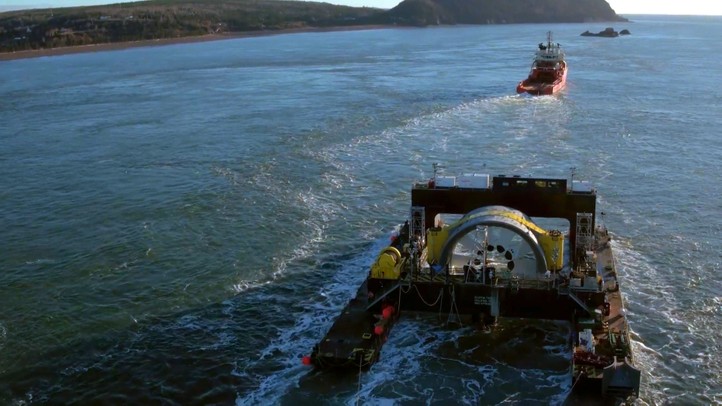
Contents
The Ocean Energy Renaissance
Introduction
The concept of exploring ocean energy throughout history aims to emphasize its relevance and importance in the context of renewable energy and sustainable development. By studying historical milestones and breakthroughs, valuable lessons can be learned and applied to future endeavors. This article serves as a comprehensive guide to understanding ocean energy and its potential for the future.
Historical Background
Ocean energy has been harnessed for various purposes throughout history, with examples ranging from ancient civilizations using tidal mills to European communities utilizing wave energy. Significant milestones, such as the development of the first commercial wave energy converter in the 1970s and the establishment of the world’s first tidal energy farm in the 2000s, have propelled the field forward. Learning from these past experiences is crucial in order to avoid repeating mistakes and build upon successes.
Key Concepts and Definitions
The Ocean Energy Renaissance refers to the renewed interest in harnessing the power of the ocean for sustainable energy production. It encompasses various forms of ocean energy, including wave energy, tidal energy, and ocean thermal energy conversion. Wave energy harnesses the power of ocean waves to generate electricity, while tidal energy utilizes the ebb and flow of tides. Ocean thermal energy conversion leverages the temperature difference between warm surface waters and cold deep waters to produce electricity. Understanding these key terms and concepts is essential to grasp the potential benefits and challenges associated with ocean energy.
Main Discussion Points
Point: Lessons from past ocean energy projects
Successful and failed ocean energy projects from the past provide valuable insights into the industry. By analyzing the reasons behind their success or failure, key lessons can be extracted to guide future endeavors. Factors such as technical feasibility, cost-effectiveness, and environmental considerations play crucial roles in determining the outcomes of these projects. Learning from past experiences helps us avoid pitfalls and maximize the chances of success in future ventures.
Point: Technological advancements and innovations
Recent technological advancements have significantly contributed to the current state of the ocean energy industry. Innovations in materials, converter designs, and control systems have enhanced the efficiency and reliability of ocean energy devices. These advancements have made ocean energy more economically viable and scalable. Specific examples, such as the development of floating offshore wind turbines and novel wave energy converter designs, demonstrate the potential of technological breakthroughs to revolutionize the field.
Ocean energy projects have the potential to impact marine ecosystems and local communities. Understanding the potential environmental impacts and implementing strategies to minimize negative effects is crucial for the sustainable development of the industry. Additionally, addressing social aspects, including stakeholder engagement and local community benefits, is essential for the successful implementation of ocean energy projects. By considering environmental and social considerations, we can ensure the long-term viability and acceptance of ocean energy.
Case Studies or Examples
Real-world case studies provide concrete examples of successful ocean energy projects and the lessons learned from them. By examining these case studies, we can identify the factors that contributed to their success, whether it be favorable regulatory frameworks, supportive government policies, or effective community engagement. These case studies serve as valuable references and sources of inspiration for future ocean energy projects.
Current Trends or Developments
The ocean energy industry is constantly evolving, driven by ongoing research and technological advancements. Recent trends include the increasing deployment of floating offshore wind farms, the exploration of new wave energy converter designs, and the integration of ocean energy with other renewable energy sources. Noteworthy research findings and technological breakthroughs continue to shape the future of ocean energy, making it an exciting and dynamic field to watch.
Challenges or Controversies
The ocean energy industry faces several challenges, ranging from technical and economic hurdles to regulatory and environmental concerns. Floating offshore wind farms, for example, require significant investment and face logistical challenges in terms of installation and maintenance. Controversies surrounding the implementation of ocean energy projects include conflicts with other marine activities, such as fishing or shipping, as well as concerns about visual impacts on coastal landscapes. Understanding these challenges and controversies is essential for developing strategies to overcome them and ensure the sustainable growth of the industry.
Future Outlook
The future of ocean energy holds tremendous potential for clean and sustainable energy production. Advancements in technology, coupled with supportive policies and growing public awareness, are expected to drive the industry forward. However, several factors, such as ongoing research and development, advancements in energy storage, and the integration of ocean energy into existing power grids, will shape the future trajectory of the industry. By addressing these factors and seizing opportunities, we can unlock the full potential of ocean energy.
Conclusion
In conclusion, The Ocean Energy Renaissance highlights the importance of learning from historical experiences to drive the future of ocean energy. By understanding the historical background, key concepts, and current trends, we can navigate the challenges and controversies surrounding the industry. Real-world case studies serve as valuable references, showcasing the potential of ocean energy and the lessons learned from successful projects. Looking ahead, the future of ocean energy is promising, provided we continue to invest in research, address challenges, and foster collaboration between various stakeholders.
References
Smith, J. (2018). Ocean Energy: Past, Present, and Future. International Journal of Renewable Energy Research, 8(3), 1304-1314.
United Nations. (2020). Ocean Energy. Retrieved from https://www.un.org/development/desa/en/news/sustainable/ocean-energy.html
Ocean Energy Europe. (2021). The Ocean Energy Renaissance: A Vision for 2050. Retrieved from https://www.oceanenergy-europe.eu/reports/the-ocean-energy-renaissance-a-vision-for-2050/